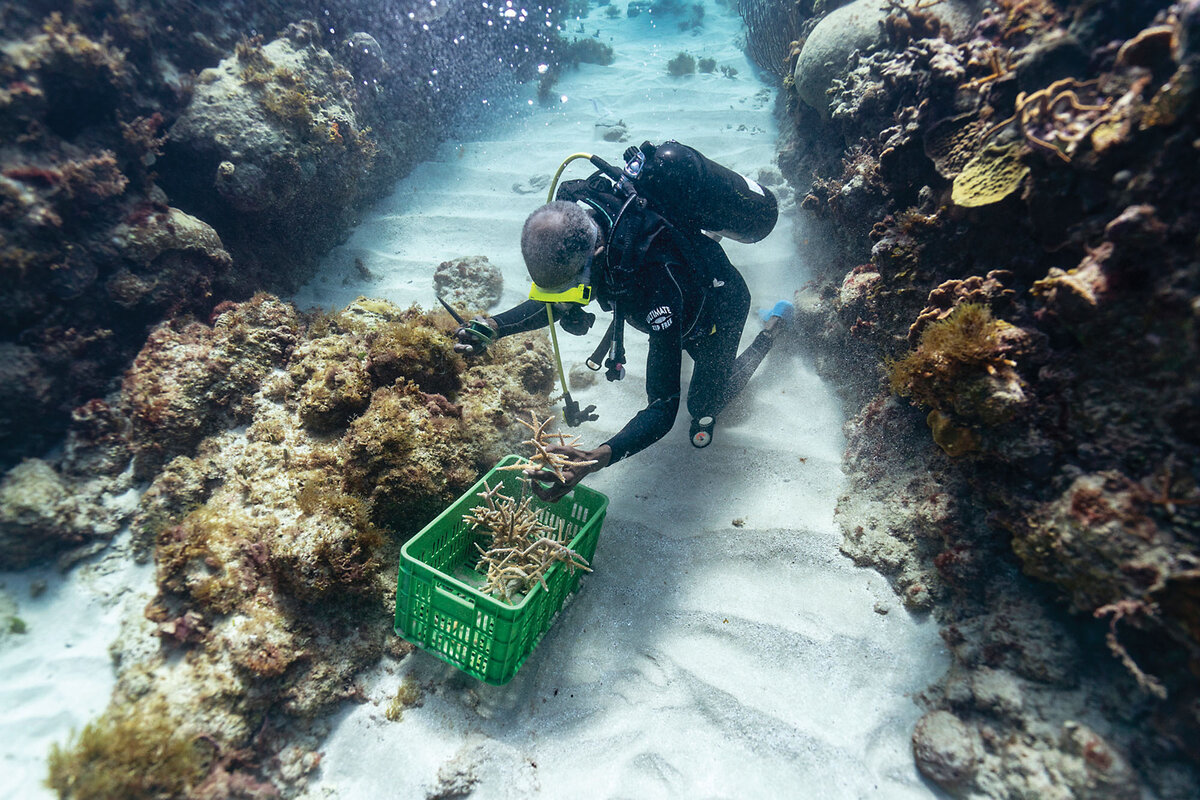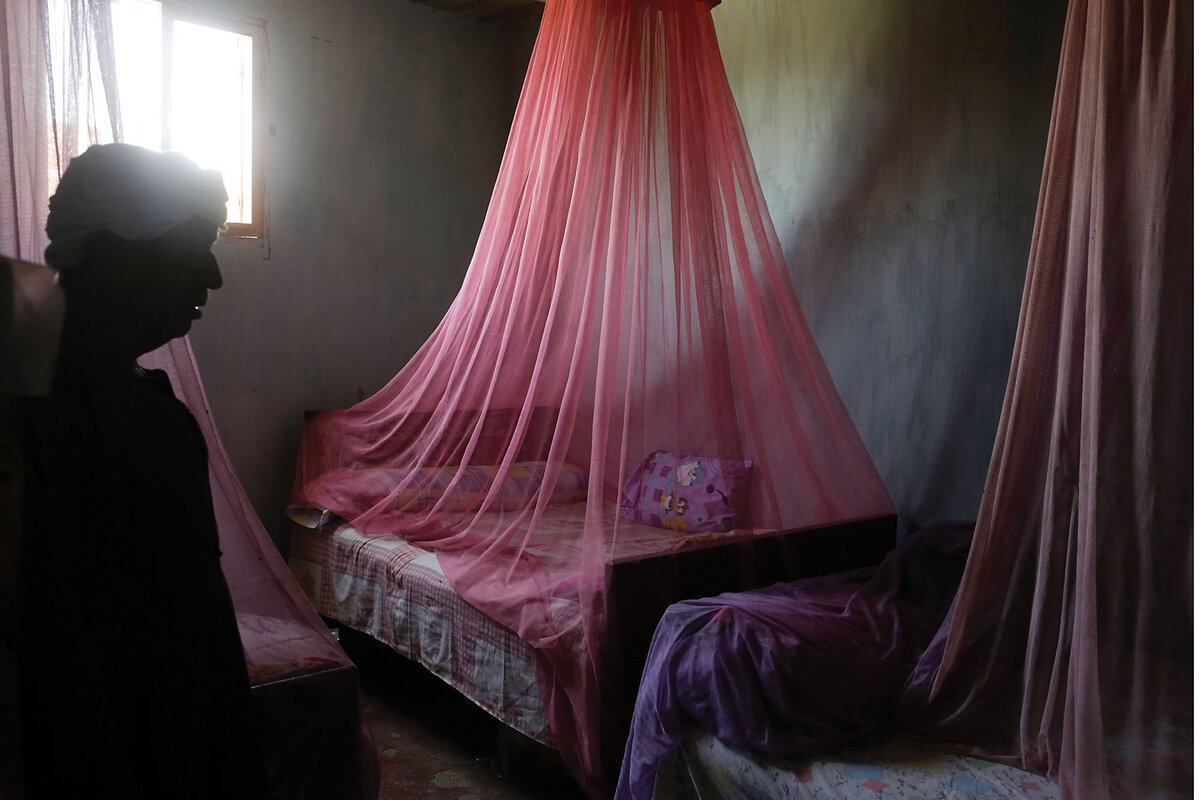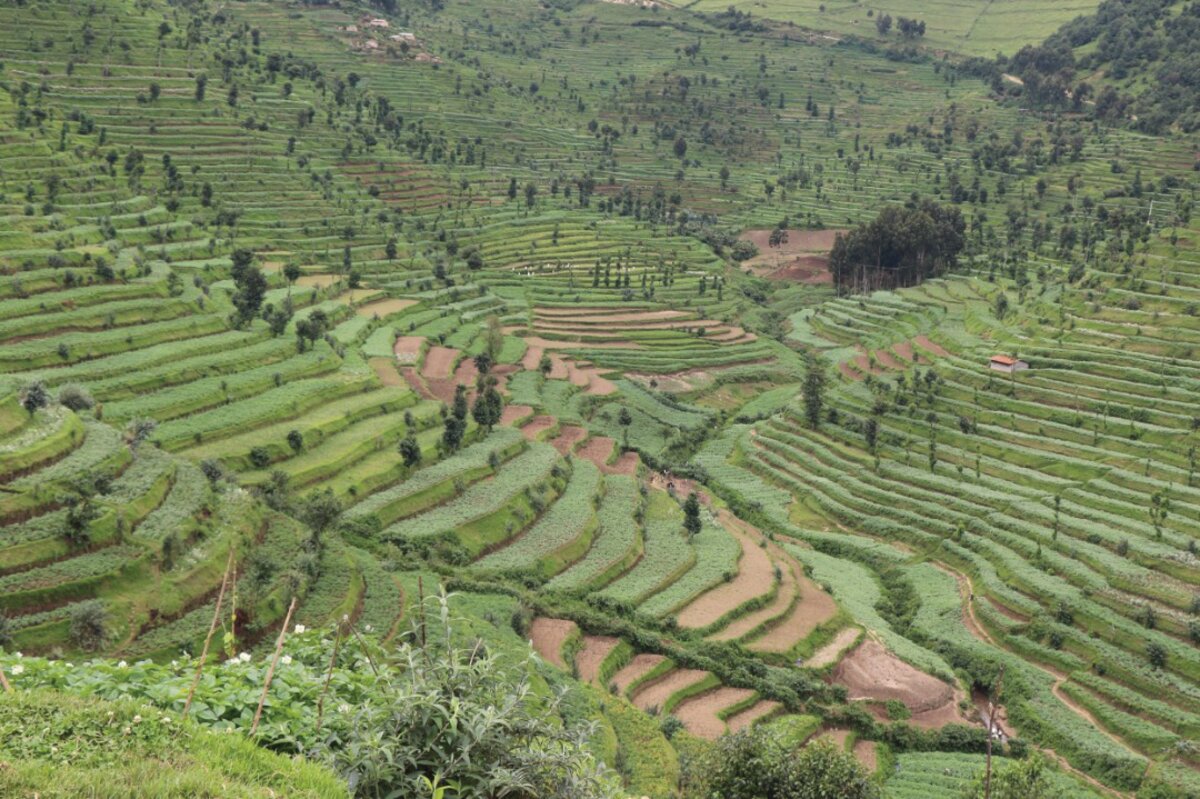Growing baby corals in the nursery and corn on steep hillsides
Loading...
Researchers developed a powder that efficiently absorbs carbon dioxide from the air
Carbon capture is one way to lower CO2 levels in the atmosphere, but scientists have struggled to find materials that hold up to repeated use.
Chemists at the University of California, Berkeley have discovered a covalent organic framework they named COP-999. The porous, crystalline material captures 100 times its mass in carbon in a year. That’s about the same carbon capture capacity of a tree. When outdoor air was passed through the yellow powder, it removed all the CO2.
Why We Wrote This
In our progress roundup, patient preparation yields success for coral raised from embryos, and terrace-grown crops in Rwanda. And in science that advances past research, a lab creates a powder that absorbs carbon dioxide.
Omar Yaghi, a senior author of the research, is credited with developing the class of materials that includes COP-999. “There’s nothing like it out there in terms of performance,” he said. “It breaks new ground in our efforts to address the climate problem.”
Sources: Nature, Good Good Good
Corals nurtured as cells and then planted on reefs survived a historic heat wave
A record marine heat wave in 2023 caused the worst coral bleaching ever seen in the Caribbean, with reefs turning white and dying across the region. But some corals resisted. Specimens of six species remained 90% healthy, compared with just 24% of wild corals.
These corals were grown using a process called coral seeding, which involves fertilizing coral spawn in labs to produce genetically diverse larvae. Those are then planted in the ocean. This diversity helps corals better adapt to rising ocean temperatures. With outplanting occurring across five countries from 2011 to 2022, only lab-grown corals less than 10 years old withstood bleaching. Researchers caution that restoration alone isn’t enough to save reefs without wider action on climate change.
Source: Mongabay
Women are thriving in Moldova’s tech industry
Less than a third of the jobs in the U.S. tech sector are held by women; in the United Kingdom, it’s less than a fifth. But in Moldova, one of the poorest countries in Europe, women are welcome in tech, making up 43% of workers.
A big part of Moldova’s strategy for digital transformation is getting more women into STEM fields. That includes programs such as Tech Women Moldova and GirlsGoIT, which are supported by the United Nations Development Programme and have connected thousands of women to educational opportunities, conferences, and career mentorship.
Cultural norms have had to shift along the way. “Ten years ago, [teachers] actually believed that women shouldn’t be in the tech sector,” said Marina Bzovii, an administrator at a hub for tech companies.
Source: Reasons to be Cheerful
Egypt is certified malaria-free
Africa carries most of the global malaria burden, and of the 608,000 malaria deaths in 2022 worldwide, 76% were children under 5 years old. To receive World Health Organization certification, a country must go three consecutive years without malaria and be able to prevent a resurgence.
A century after efforts began there to eliminate the disease, Egypt joins a list of 44 nations that have been declared free of malaria, including Algeria, Morocco, Mauritius, and Cape Verde in Africa.
Sources: BBC, World Health Organization
Farmers are growing more food by making better use of steep hillsides
Around 70% of the population relies on farming in Rwanda, often called the “land of a thousand hills.” Instead of crops being planted along the contour of a hill, which lets rainwater run downward, “radical terraces” slope backward toward the mountain. Erosion is reduced and helps keep soil fertile.
After 2,300 hectares (5,700 acres) of terraces – the majority radical, some downward-sloping – were built in the northwest, soil erosion fell by almost 90%, and potato yields more than doubled. Radical terraces can be built within days, but the cost can be prohibitive, and poorly designed terraces can trigger landslides. Still, a 2023 national plan to boost agriculture included 142,000 hectares of new radical terraces by the end of 2024.
Source: Reasons to be Cheerful









